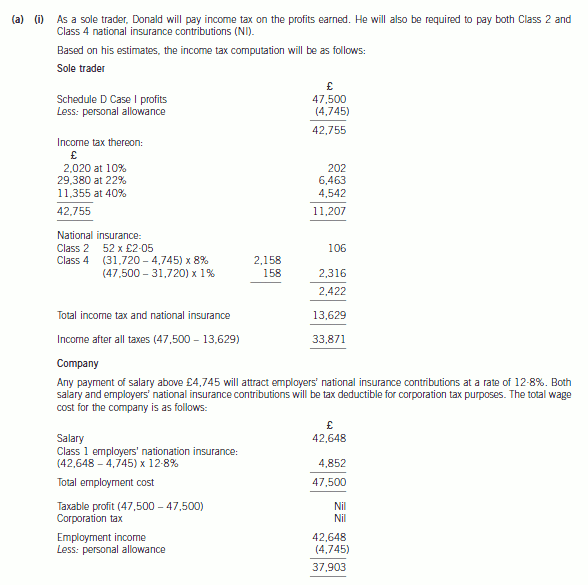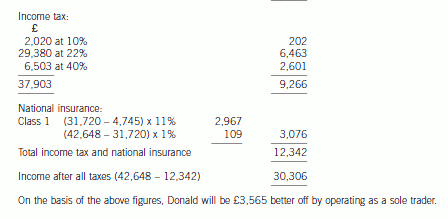西藏考生注意啦!你对ACCA了解多少呢?看了这些让你明白
发布时间:2020-01-09
2020年,目前风靡全球的ACCA证书许多人都听说过,但真正了解它的人或许是少之又少的,它是从事会计行业的会计人梦寐以求的证书,据说拿到了ACCA证书的人生活质量都得到了极大的提升,那么ACCA国际会计师到底是什么呢?它是有什么魔力让成千上万的人争相报考呢?且随51题库考试学习网一起了解一下吧。
ACCA证书是什么?
ACCA在国内被称为"国际注册会计师",是全球含金量高的财会金融领域的证书之一,在国际上的认可范围很广的财务人员资格证书。ACCA全称:英国特许公认会计师公会(The Association of Chartered Certified Accountants)。
ACCA证书的优点是什么?
他的优点分为以下几类:首先是在报名条件上门槛不高,不像国内其他类似的高级会计师一样有报考专业和工作年限的要求,它的报考并无专业限制;
其次,它的知识架构完整且基础,即便是无财会背景人士通过学习可以了解财务领域所有知识与技能;
最后,ACCA证书认可雇主皆为全球五百强企业。
拥有ACCA认证,就拥有了全球求职"通行证"
在培养方式的优势:
重视逻辑思维的培养
西方人重视考生逻辑思维,不同于国内的考试的是,在ACCA考试中,答题时需要表明个人观点与论据,并且在观点与论据中不能存在逻辑矛盾。比如分析事件内部与外部环境对它有什么影响,这些影响中哪些是可以控制的,哪些是不可以控制的,有哪些有利和不利的情况,不利的情况哪些是可以避免的,哪些是可以减少的等等。通过细分的分析,可以对一个事件有一个清晰的轮廓。
ACCA协会提倡和鼓励学员从战略角度思考问题,并且充当一位完美主义者。由于ACCA协会重在培养财务管理人才,在真实的工作岗位中,并不仅仅是需要面对会计知识领域事件,因此培养个人战略眼光是非常重要的,这也是他们的核心价值的体现。在学习过程中,从基本的逻辑分析入手,培养自己在复杂环境下的决策、判断和心理承受能力,这些能力的养成可通过教材中的大量案例的反复研究。经过一段学习之后,所影响的不仅仅是自我的知识感官,更加是生活感悟。
培养开放性思维
在ACCA考试的第三阶段,判分很宽松,这就是跟国内考试最大的差别,国内考试只要跟标准答案有出入你的回答就是错误的,而对于ACCA考试而言,考生相应就有了自由表达的空间。考官提供的答案也仅仅是参考答案,只要考生的回答在逻辑关系上言之成理,内容上言之有物,且与所问的题目相关,评分的专家大笔一挥就给分了。因此,小编提醒大家,到了第三阶段,思维一定要开放,不仅可以运用本门课程所学的知识,其他课程学习的知识甚至平常积累的知识都可以搬上来,思路越开阔,写的东西越贴近论点,得分就越高。
注重积累实践经验
平时注重积累实践经验, 采用各种方式了解会计、审计、财务管理和管理信息系统的实际运转流程, 这对ACCA的备考很有帮助。同时利用这个宝贵的学习机会,可以了解到国际的会计、审计和管理知识,接受国际上的教育,使自己开阔眼界,提高素质,更好地开展审计工作。一举两得,何乐而不为呢?
看完以上的这些信息之后,相信大家对ACCA国际注册师也有了一定的了解,对此类考试感兴趣的小伙伴们可以持续关注51题库考试学习网哟~
下面小编为大家准备了 ACCA考试 的相关考题,供大家学习参考。
(iii) problems with delegation; (4 marks)
(iii) Problems with delegation are threefold. Firstly, reluctance from managers who are afraid of losing control, who fear that subordinates may carry out the work badly and who are resentful of subordinate development. Secondly, there is the problem of lack of confidence, lack of self confidence in the manager and often a lack of confidence in the subordinates.Thirdly, there are problems of trust; that is the amount of trust the superior has in the subordinate and the trust that the subordinate feels the superior has in him or her.
6 Assume today’s date is 16 April 2005.
Henry, aged 48, is the managing director of Happy Home Ltd, an unquoted UK company specialising in interior
design. He is wealthy in his own right and is married to Helen, who is 45 years old. They have two children – Stephen,
who is 19, and Sally who is 17.
As part of his salary, Henry was given 3,000 shares in Happy Home Ltd with an option to acquire a further 10,000
shares. The options were granted on 15 July 2003, shortly after the company started trading, and were not part of
an approved share option scheme. The free shares were given to Henry on the same day.
The exercise price of the share options was set at the then market value of £1·00 per share. The options are not
capable of being exercised after 10 years from the date of grant. The company has been successful, and the current
value of the shares is now £14·00 per share. Another shareholder has offered to buy the shares at their market value,
so Henry exercised his share options on 14 April 2005 and will sell the shares next week, on 20 April 2005.
With the company growing in size, Henry wishes to recruit high quality staff, but the company lacks the funds to pay
them in cash. Henry believes that giving new employees the chance to buy shares in the company would help recruit
staff, as they could share in the growth in value of Happy Home Ltd. Henry has heard that there is a particular share
scheme that is suitable for small, fast growing companies. He would like to obtain further information on how such
a scheme would work.
Henry has accumulated substantial assets over the years. The family house is owned jointly with Helen, and is worth
£650,000. Henry has a £250,000 mortgage on the house. In addition, Henry has liquid assets worth £340,000
and Helen has shares in quoted companies currently worth £125,000. Henry has no forms of insurance, and believes
he should make sure that his wealth and family are protected. He is keen to find out what options he should be
considering.
Required:
(a) (i) State how the gift of the 3,000 shares in Happy Home Ltd was taxed. (1 mark)
(a) (i) Gift of shares
Shares, which are given free or sold at less than market value, are charged to income tax on the difference between the
market value and the amount paid (if any) for the shares. Henry was given 3,000 shares with a market value of £1 at
the time of gift, so he was assessed to income tax on £3,000, in the tax year 2003/04.
For this part, assume today’s date is 15 August 2005.
5 (a) Donald is aged 22, single, and about to finish his university education. He has plans to start up a business selling
computer games, and intends to start trading on 1 April 2006, making up accounts to 31 March annually.
He believes that his business will generate cash (equal to taxable profits) of £47,500 in the first year. He
originally intended to operate as a sole trader, but he has recently discovered that as an alternative, he could
operate through a company. He has been advised that if this is the case, he can take a maximum gross salary
of £42,648 out of the company.
Required:
(i) Advise Donald on the income tax (IT), national insurance (NIC) and corporation tax (CT) liabilities he
will incur for the year ended 31 March 2007 trading under each of the two alternative business
structures (sole trade/company). Your advice should be supported by calculations of disposable income
for both alternatives assuming that in the company case, he draws the maximum salary stated.
(7 marks)


声明:本文内容由互联网用户自发贡献自行上传,本网站不拥有所有权,未作人工编辑处理,也不承担相关法律责任。如果您发现有涉嫌版权的内容,欢迎发送邮件至:contact@51tk.com 进行举报,并提供相关证据,工作人员会在5个工作日内联系你,一经查实,本站将立刻删除涉嫌侵权内容。
- 2020-01-10
- 2020-04-21
- 2020-05-02
- 2020-04-29
- 2020-03-03
- 2020-01-09
- 2020-04-11
- 2020-03-13
- 2020-02-18
- 2020-01-10
- 2020-01-10
- 2020-01-09
- 2020-01-10
- 2020-02-20
- 2020-04-22
- 2020-04-19
- 2019-03-27
- 2020-02-19
- 2020-01-14
- 2020-05-21
- 2020-01-10
- 2020-04-15
- 2020-01-10
- 2020-01-10
- 2020-05-08
- 2019-03-16
- 2020-01-09
- 2020-01-10
- 2020-01-10
- 2020-01-10